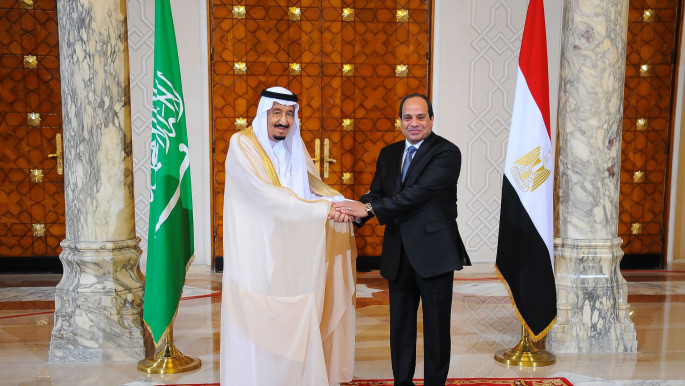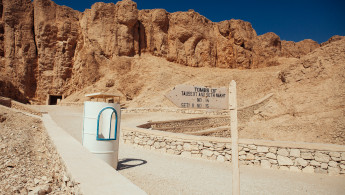Egypt to receive first tranche of $3 billion loan
The World Bank loan will accompany a programme of reform as Egypt attempts to recover its fractured economy.
2 min read
Egypt is struggling with a battered economy and a crippling dollar shortage [Getty]
Egypt will receive the first $1 billion instalment of a $3 billion World Bank loan after the country's parliament approves the government's economic programme.
The Egyptian parliament is expected to approve the programme in April, four months after the deal was first agreed with the international lender in December 2015.
The first loan instalment will see Egypt implement Value Added Tax (VAT) as part of the agreement, which the bank's vice president for the Middle East and North Africa (MENA) region, Hafez Ghanem, mentioned as a key reform linked to the first tranche of money.
This reform has already been met by opposition from some of Egypt's banks, who have said that they will not register for the tax.
Egypt's agreement with the bank is also tied to several other economic changes, however Ghanem insisted that future instalments would not be accompanied by requests for specific reforms.
Nonetheless, the bank's MENA region vice president insisted that his organisation would still highlight its expectations of Egypt's economic programme.
Easing or increasing aid dependence?
Faced with huge economic upheaval since 2011's revolution and a dollar shortage that has paralysed imports, Egypt has been negotiating loans worth billions of dollars in an attempt to improve the country's dire economic outlook.
Last week, Egyptian President Abdel Fatah al-Sisi hosted a delegation from Riyadh, headed by the Saudi monarch, which led to the agreement of a $16 billion investment fund, as well as an economic-free zone to help develop Egypt's Sinai region.
As part of the negotiations, President Sisi also signed off the controversial handover of two disputed Red Sea islands to the kingdom, sparking a backlash from Egyptians infuriated by the move.
Meanwhile, Egypt has also said that it will ease its dependence on grants from its rich neighbours and will instead focus on attracting foreign investment in order to ease the dollar shortage it currently faces.
Last month, Egypt's prime minister announced that the country's economy is currently growing at a rate of around 4.2 percent, with a budget deficit of approximately 11.5 percent.
The Egyptian parliament is expected to approve the programme in April, four months after the deal was first agreed with the international lender in December 2015.
The first loan instalment will see Egypt implement Value Added Tax (VAT) as part of the agreement, which the bank's vice president for the Middle East and North Africa (MENA) region, Hafez Ghanem, mentioned as a key reform linked to the first tranche of money.
This reform has already been met by opposition from some of Egypt's banks, who have said that they will not register for the tax.
Egypt's agreement with the bank is also tied to several other economic changes, however Ghanem insisted that future instalments would not be accompanied by requests for specific reforms.
Nonetheless, the bank's MENA region vice president insisted that his organisation would still highlight its expectations of Egypt's economic programme.
Easing or increasing aid dependence?
Faced with huge economic upheaval since 2011's revolution and a dollar shortage that has paralysed imports, Egypt has been negotiating loans worth billions of dollars in an attempt to improve the country's dire economic outlook.
Last week, Egyptian President Abdel Fatah al-Sisi hosted a delegation from Riyadh, headed by the Saudi monarch, which led to the agreement of a $16 billion investment fund, as well as an economic-free zone to help develop Egypt's Sinai region.
 |
|
| King Salman and President Sisi meet in Cairo [Anadolu] |
Meanwhile, Egypt has also said that it will ease its dependence on grants from its rich neighbours and will instead focus on attracting foreign investment in order to ease the dollar shortage it currently faces.
Last month, Egypt's prime minister announced that the country's economy is currently growing at a rate of around 4.2 percent, with a budget deficit of approximately 11.5 percent.





 Follow the Middle East's top stories in English at The New Arab on Google News
Follow the Middle East's top stories in English at The New Arab on Google News

![Israeli forces ordered bombed Gaza's Jabalia, ordering residents to leave [Getty]](/sites/default/files/styles/image_330x185/public/2176418030.jpeg?h=a5f2f23a&itok=_YGZaP1z)
